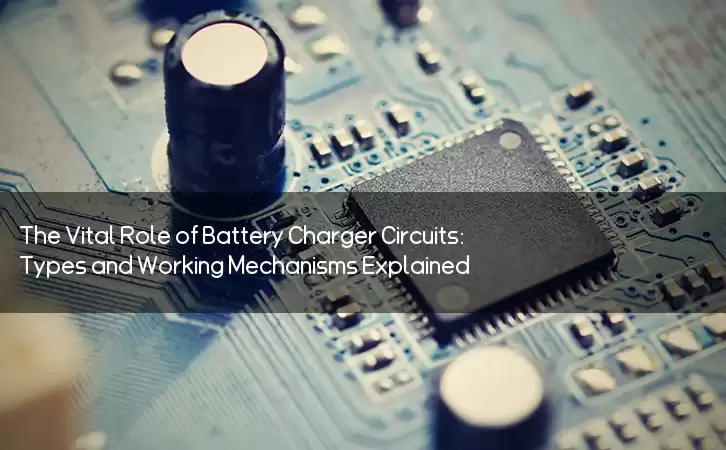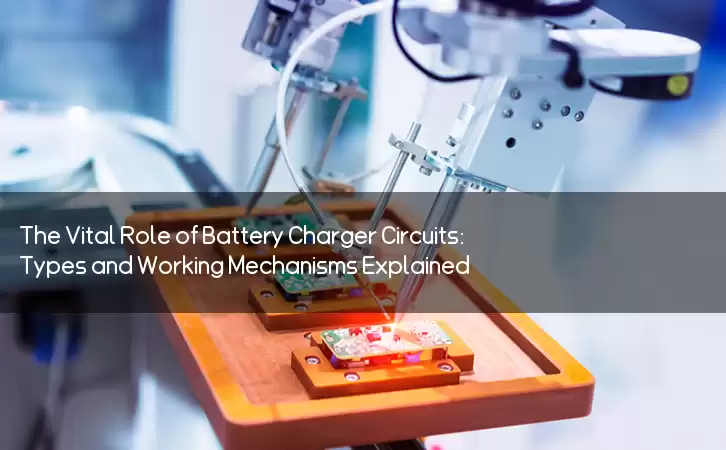Information Center
The Vital Role of Battery Charger Circuits: Types and Working Mechanisms Explained
Published:2023-08-28 10:33:37 Author:Green WCND Views:73A battery charger circuit is an essential component in many modern devices we rely on for our everyday lives. From smartphones and laptops to electric cars and buses, battery chargers are a vital part of the charging infrastructure. In this article, we will explore what a battery charger circuit is, how it works, and the different types available on the market today.

A battery charger circuit is essentially an electronic circuit designed to charge a rechargeable battery, such as a lithium-ion battery. The circuit performs the task of transferring electrical energy from a power source to the battery, where it is stored until it is needed. The charging process takes place in stages, with each stage having a specific charging current, voltage, and time duration. The charging process is also dependent on the specifics of the battery, such as its capacity, chemistry, and charging requirements.

The battery charger circuit typically consists of a rectifier (to convert AC to DC), a filter (to smooth out the DC voltage), a voltage regulator (to maintain a stable output voltage), and a charging profile controller (to manage the charging process). The rectifier converts AC voltage to DC voltage, which is then filtered to remove any voltage fluctuations. The voltage regulator ensures that the output voltage is stable and reliable, even under varying loads. The charging profile controller manages the charging process to ensure that the battery is charged optimally, without overcharging or undercharging.
There are several types of battery charger circuits available on the market, each designed for different applications and battery chemistries. Some common types of battery chargers include:
1. Linear Charger: A simple yet effective battery charger circuit that uses a linear regulator to regulate the charging current and voltage. It is suitable for small batteries and low power applications.
2. Switching Charger: A more advanced battery charger circuit that uses a switching regulator to regulate the charging current and voltage. It is suitable for larger batteries and higher power applications.
3. Pulse Charger: A specialized battery charger circuit that uses high-frequency pulses to charge the battery. It is suitable for lead-acid batteries and other chemistries that require regular pulsing to maintain their capacity.
4. Solar Charger: A battery charger circuit that uses solar panels to charge the battery. It is suitable for remote or off-grid applications where access to a grid connection is limited.
In conclusion, a battery charger circuit is an essential component in modern electronics and electric vehicles. It allows us to recharge our devices and vehicles, ensuring that they remain operational without the need for disposable batteries. The advancement of battery charger technology has enabled us to use rechargeable batteries in a wide range of applications, from small electronic devices to electric vehicles, helping to reduce our environmental impact. With the continued development of battery charger technology, we can expect to see more efficient and effective charging solutions in the future.
Power Adapter Design and Customization Guide for Portable Electric KettlesI. Common Design Types for Portable Electric Kettle Power AdaptersPortable electric ke···
I. Common Design Types of Power Adapters External Independent Type (Most Common) Design: A standalone adapter (e.g., "black brick") connected to the p···
Handheld Vacuum Cleaner Power Adapter Selection GuideIntroductionHandheld vacuum cleaners have become a mainstream tool for household cleaning due to their port···
Drill Power Adapter Selection Guide.drill-container { font-family: Arial, sans-serif; line-height: 1.6; max-width: 800px; margin: 0 auto; padding: 20px; } .dril···





